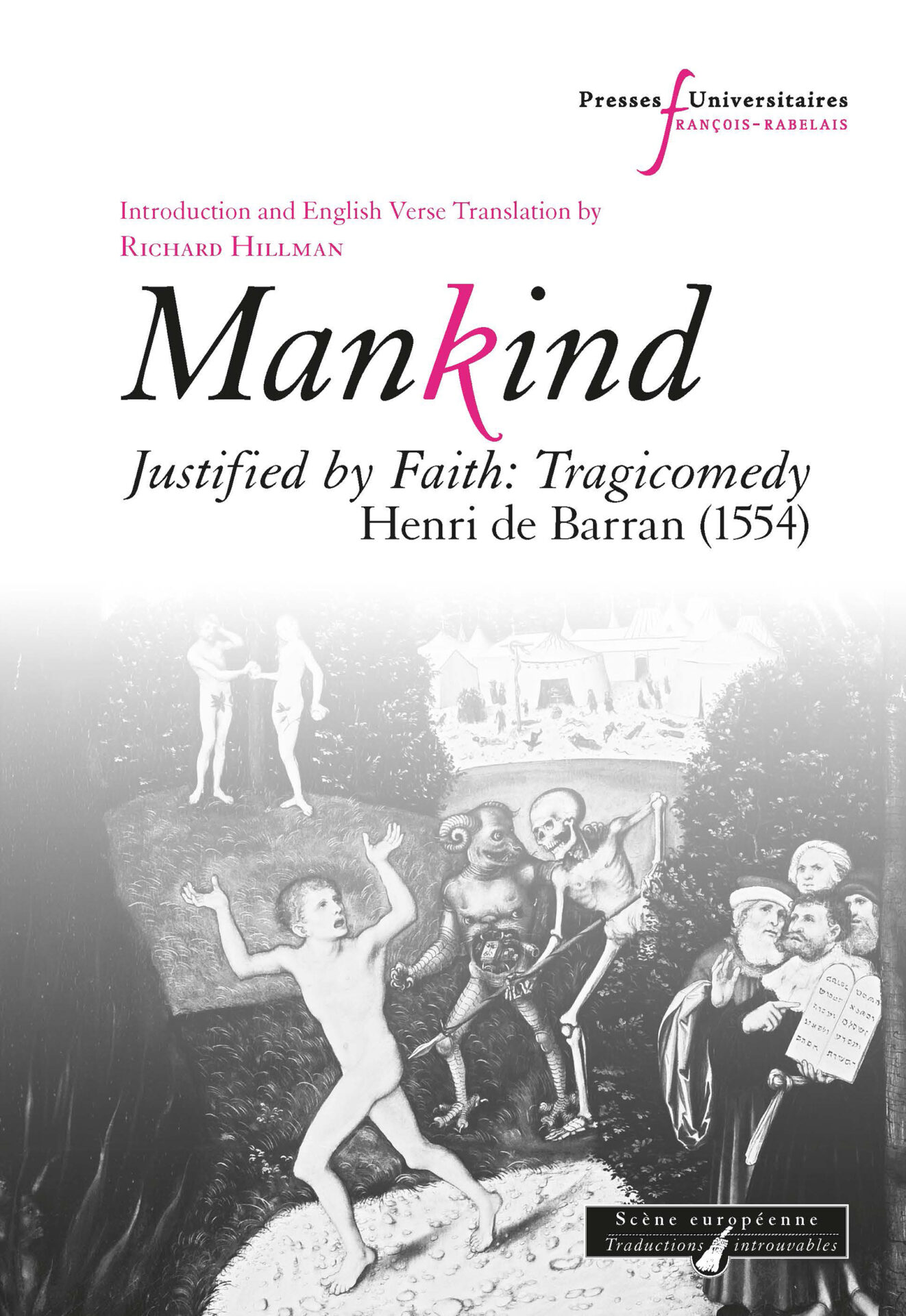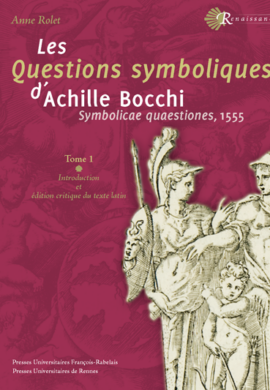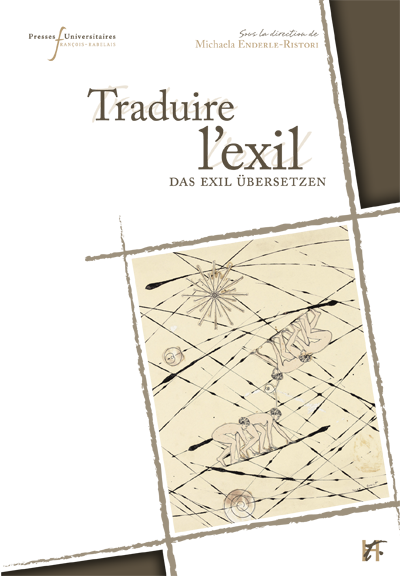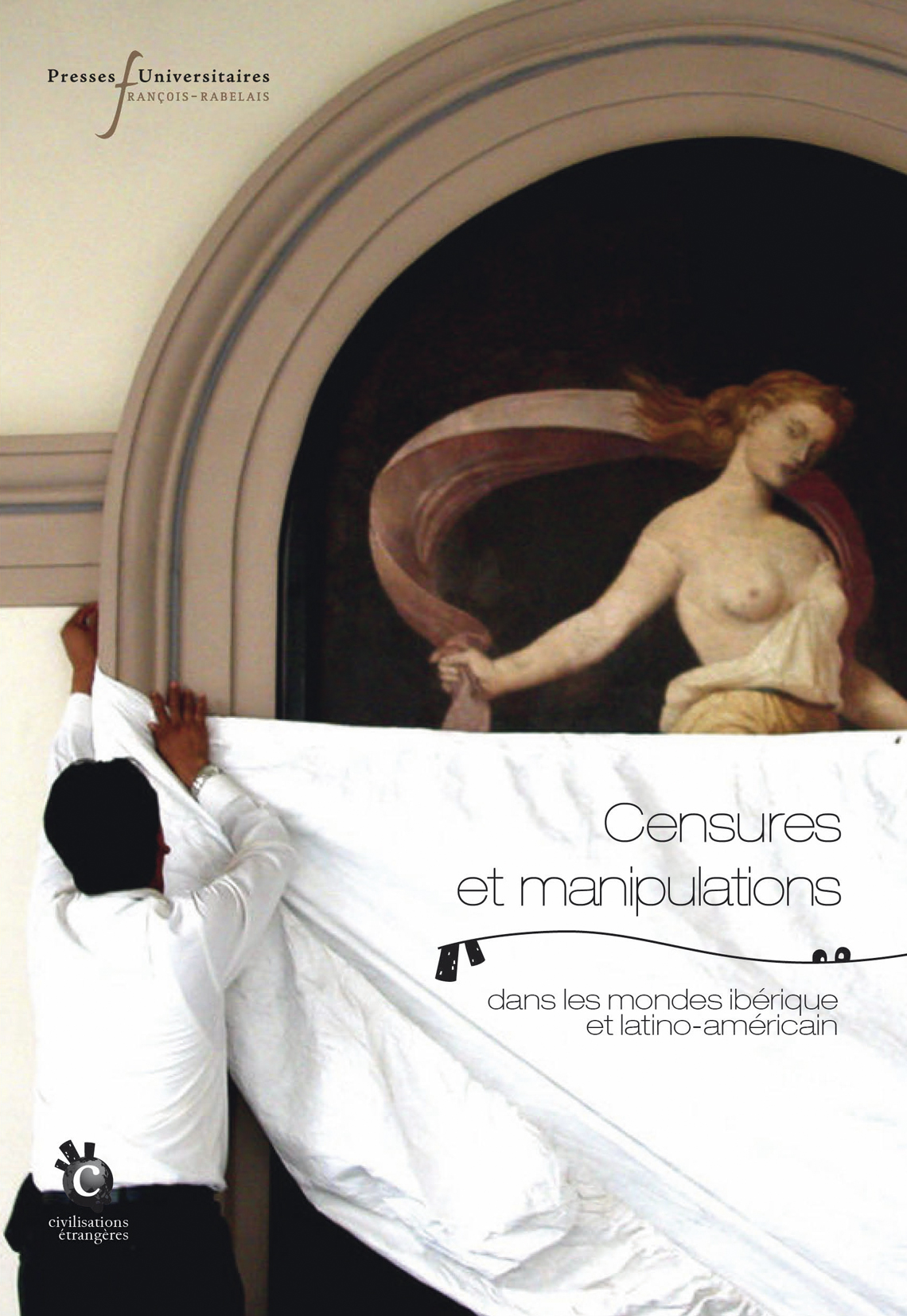Tragique comedie francoise de l’homme justifié par Foy (1554) est une moralité française peu connue créée par le pasteur Henri de Barran et liée au courant de la Réforme. Cette pièce de théâtre, traduite pour la première fois en anglais, apporte un éclairage précieux sur certaines tendances s’exprimant dans les interludes anglais à l’époque, comme dans certaines pièces du théâtre élisabéthain plus tardives. Parmi elles, on compte notamment Le Marchant de Venice de Shakespeare, où l’on retrouve un représentant de la Vieille Loi (ici « Rabbi ») et le motif de l’ouverture de la poitrine du protagoniste. Comme dans le théâtre élisabéthain, la prise de conscience du péché et le repentir qui lui est associé, deviennent des processus dûment internalisés. Pour autant, l’écriture théâtrale de Barran est loin d’être statique. En mettant en scène les interactions de l’Homme avec ses ennemis et ses alliés spirituels, il déploie une énergie et une inventivité remarquables, se distinguant autant comme polémiste que comme dramaturge.
This little-known French moral allegory, published in Protestant Geneva and disparaging the Roman Catholic church on the grounds of both doctrine and practice, serves as an illuminating intertext for contemporary English interludes, as for certain works of the Elizabethan theatre. Given the negative role of a figure called “Rabbi” as a representative of the Old Law and the motif of cutting open the breast of the universal Mankind figure, the analogues notably include Shakespeare’s The Merchant of Venice. More broadly anticipated is the later drama’s development of conscience, in keeping with Reformation theology, as a thoroughly internalised function serving as a pivot between culpability and redemption. Yet Barran’s dramaturgy is far from static. In depicting Mankind’s interactions with his spiritual enemies and allies, he deploys remarkable energy and invention, distinguishing himself equally as a polemecist and a playwright.
Annexes
Disponible en ligne sur le site du Centre d'études supérieures de la Renaissance :
- https://sceneeuropeenne.univ-tours.fr/traductions/TSA-GA [Publié le 07/06/2022]
20,00 €
En stock
Mankind Justified by faith: tragicomedy;
Tragique comedie francoise de l’homme justifié par Foy (1554) est une moralité française peu connue créée par le pasteur Henri de Barran et liée au courant de la Réforme. Cette pièce de théâtre, traduite pour la première fois en anglais, apporte un éclairage précieux sur certaines tendances s’exprimant dans les interludes anglais à l’époque, comme dans certaines pièces du théâtre élisabéthain plus tardives. Parmi elles, on compte notamment Le Marchant de Venice de Shakespeare, où l’on retrouve un représentant de la Vieille Loi (ici « Rabbi ») et le motif de l’ouverture de la poitrine du protagoniste. Comme dans le théâtre élisabéthain, la prise de conscience du péché et le repentir qui lui est associé, deviennent des processus dûment internalisés. Pour autant, l’écriture théâtrale de Barran est loin d’être statique. En mettant en scène les interactions de l’Homme avec ses ennemis et ses alliés spirituels, il déploie une énergie et une inventivité remarquables, se distinguant autant comme polémiste que comme dramaturge.
This little-known French moral allegory, published in Protestant Geneva and disparaging the Roman Catholic church on the grounds of both doctrine and practice, serves as an illuminating intertext for contemporary English interludes, as for certain works of the Elizabethan theatre. Given the negative role of a figure called “Rabbi” as a representative of the Old Law and the motif of cutting open the breast of the universal Mankind figure, the analogues notably include Shakespeare’s The Merchant of Venice. More broadly anticipated is the later drama’s development of conscience, in keeping with Reformation theology, as a thoroughly internalised function serving as a pivot between culpability and redemption. Yet Barran’s dramaturgy is far from static. In depicting Mankind’s interactions with his spiritual enemies and allies, he deploys remarkable energy and invention, distinguishing himself equally as a polemecist and a playwright.
Annexes
Disponible en ligne sur le site du Centre d'études supérieures de la Renaissance :
- https://sceneeuropeenne.univ-tours.fr/traductions/TSA-GA [Publié le 07/06/2022]
20,00 €
En stock






